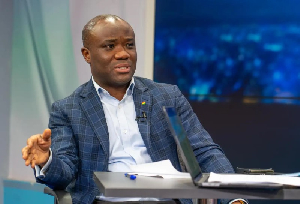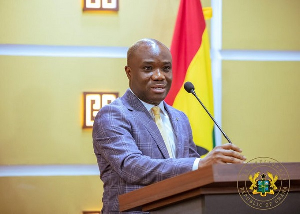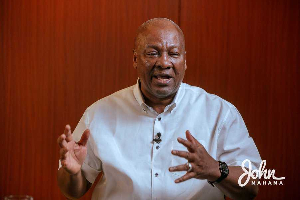The use of thugs by bad politicians did not start today. Dating back to the early days of our post-independence history and before it has cost lives and led to permanent disfigurement of many.
The use of the adjective ‘bad’ in the foregone might trigger questions by the fastidious which is legitimate. The bad politician is that person for who the end justifies the means. If spilling blood can lead to the achievement of their political goals so be it.
Those who operate on this pedestal cannot no matter what pass for good politicians: their claims to have the interest of the country at heart are reduced to nothing but the usual soap box sermonizing about their good intentions and the need to be decent.
The quest for political office should be guided by the national interest and morality. Where dangerous means are adopted in a bid to achieve political objectives those engaged in the parlous path lose moral authority to want to serve the people as leaders.
It even prevents those with good intentions from venturing into the political industry which in our country is not meant for the gentleman but those who can ride roughshod over their opponents with no shred of sympathy or morality.
With little or non-existence of statistics on how many have died through the acts of violence occasioned by the engagement of thugs nonetheless the subject can still be considered a worrying phenomenon which requires a holistic approach if we want to reduce it to the barest minimum.
Slums and parts of the country where education has made little or no significant inroads remain the main quarries for thugs.
These violent youth during the lean season which is the period between elections turn to the trending engagement of land guarding an industry in which both they and land owners or their assigns have died in developing parts of Accra.
Law enforcement response is yet to reduce their effect to the barest minimum a situation which is informed by various factors. Many land guards see the political season as a period of making money because bad politicians would turn to them to do their dirty work.
The recent registration exercise has opened yet a fresh page on the history of political violence in the country.
Aspirants and their supporters have suffered various degrees of serious bodily harms inflicted by thugs who have dangled dangerous weapons including firearms.
Septuagenarians can recall with apprehension the dreaded Action Troopers of the late 50s and beyond and how these persons ruled the political terrain.
Various governments vow to deal with the subject for many observers it is an area which would remain one of the challenges of local politics in as much as the so-called machomen would be hired to mete out violence where bad politicians seek to reap from the dividends that fear and panic would visit on them.
Chief Abu Adams 76 head of the Dagomba community in the Eastern Region who once worked at the Flagstaff House’s Presidential Details Department as a Vetting Officer recalls how the Gold Coast was when he was a young boy.
“I worked at the Presidential Details Department and our terms of reference were to vet persons about to be employed to work as presidential household staff in those days. We went behind the scene to undertake background checks on such applicants. We were for instance very active when the Organisation Of African Unity (OAU) was going to be held in 1965 in Accra. My head of department was Ambassador Otoo. The Flagstaff House was manned by top civil servants such as Ambassador Eric Otoo.
“In those days those engaged in political violence were not the youth but grown-ups who were driven by a cause. Theirs was then not about money as we have today. I remember traveling to Kumasi in 1955 and my father warned me to be wary about this city which was then a bedlam of violence. The Action Troopers, CPP supporters were active” he said adding that people rarely went out at night in the heat of the violence in those days.
The National Liberation Movement (NLM) membership was a number of persons who fell out with Nkrumah the ensuing dichotomy resulting in an assortment of security challenges for the colonial authorities. The British turned to elections to test as it were the popularity who was the centre of the storm.
Kwame Nkrumah had made significant electoral gains and even after protests from his opponents to the colonial authorities that his party was not the most popular he went ahead to win another election after the British arranged for it Chief Adams recalled. “Imoru Egala and others lost their seats and Nkrumah gained more seats in Parliament. “Alex Boyd then Secretary for Colonial Affairs was dispatched to oversee the polls the outcome convinced them that here was a man who could not overlooked in the scheme of things.
“Kumasi was a no-go area for Kwame Nkrumah and it remained so until Krobo Edusei whose sister had been shot dead in the violence which dotted the Gold Coast made an uneventful entry into the city. The ice was broken after Krobo Edusei who later became an important ally of Kwame Nkrumah assured the former president that in his company there would not be any trouble in Kumasi when they visit. It turned out that indeed nothing untoward happened during the visit” he said.
The treason trial of Malam Tula among others after independence he said made headlines in the country a trial occasioned by the incidence of violence across the country.
In all Chief Abu Adams said a war of conscience and not money was the impetus. Kwame Nkrumah he went on “created a safe haven for Africans from countries in the shackles of colonialism. Robert Mugabe, Sam Nujoma were some of the names I can remember all of who were housed at a place which later became the Ministry of Foreign Affairs.
Unless something is done about the rising trend of political violence in our country the situation would one day explode beyond easy management. Even more worrying is the fact that when it occurs both leading parties trade accusations engagement which beclouds the true picture of the nasty and unnecessary spilling of blood and breaking of bones.
Opinions of Sunday, 8 May 2016
Columnist: A.R. Gomda



















